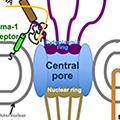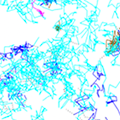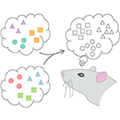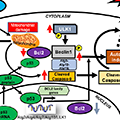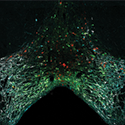Featured Paper of the Month – March 2021
Published in The Journal of Neuroscience by Ewa Galaj, Ph.D. Ph.D. and Zheng-Xiong Xi, M.D., Ph.D., et al. in the NIDA IRP Addiction Biology Unit.
Opioid reward has long been believed to be mediated by inhibition of VTA GABA interneurons that disinhibits DA neurons. In this study, we found that GABA neurons of the neighboring substantia nigra pars reticulata play a more important role in opioid reward and relapse than VTA GABA interneurons…


